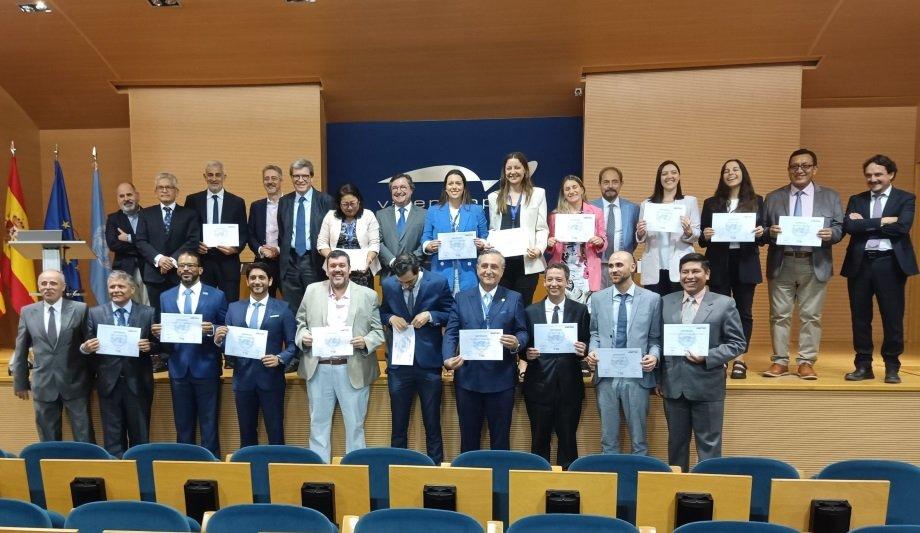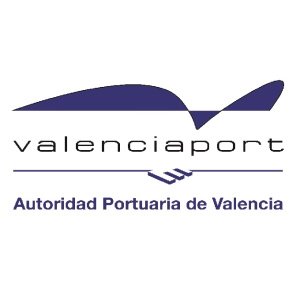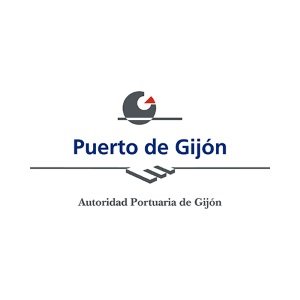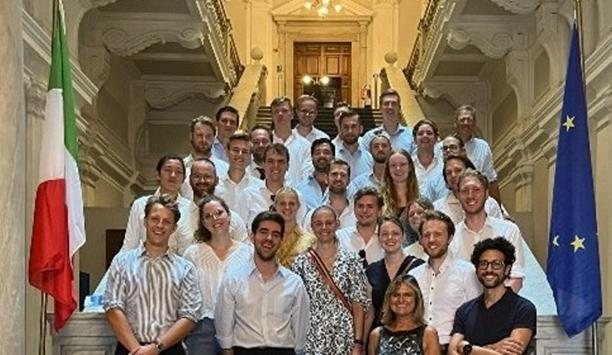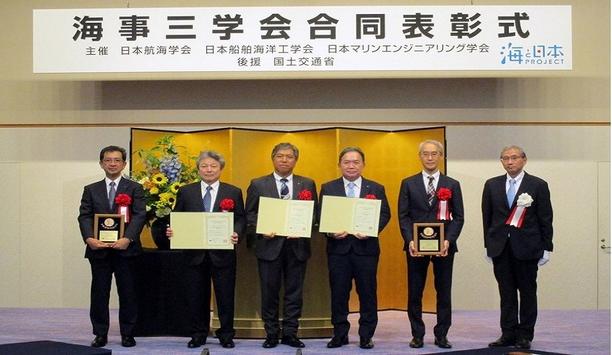For 15 days, the Port of Valencia has welcomed a group of students from Argentina, Peru, Uruguay, Bolivia and the Dominican Republic from the ‘Train For Trade’ programme, organised by the United Nations Conference on Trade and Development (UNCTAD), who are being trained in port management by experts from Valenciaport and the Valencia port community.
The closing ceremony of this course was attended by the president of the Port Authority of Valencia (PAV), Aurelio Martínez; the president of the Port Authority of Gijón, Laureano Lourido; the chairman of the Board of Directors of the National Port Authority of Peru, Manuel Gilberto Hinojosa; the technical director of the International Association of Ports and Terminals (IAPH), Antonis Michail; and the head of Human Resources Development of the UNCTAD ‘Train For Trade’ programme, Mark Assaf. During their meeting, the institutional representatives expressed their interest ‘in coordinating new actions and promoting the training activities of the ‘Train For Trade’ programme organised by the United Nations Conference on Trade and Development (UNCTAD).’
Creating quality employment
Specifically, Aurelio Martínez offered UNCTAD “To extend collaboration in two fundamental areas: the fight against climate change and innovation. The aim is to share ideas and train port managers to transfer this knowledge between port facilities.”
The head of Valenciaport assured the students of the UNCTAD course that “The ports are fundamental to the growth of any country, in fact, 90% of all world trade is carried out by sea. The ports have the mission of ensuring the functioning of the logistics chain, promoting economic recovery and exports, attracting investment, creating quality employment, and contributing to the development of their cities.”
Management training programme
The facilities of the Port of Valencia have hosted the ‘Train For Trade’ management training programme
The president of the PAV indicated that “This type of training that the students from these countries have received is fundamental for them to pass on what they have learnt to their ports of origin to improve their day-to-day management and make them more competitive.”
For 15 days, the facilities of the Port of Valencia have hosted the ‘Train For Trade’ management training programme, a workshop that prepares instructors from the countries that form part of the programme so that they can contribute their knowledge to the ports of their countries and teach them the port management models that they are learning at the Port of Valencia. The programme, which has been taught in Spanish since 2007 and in which the ports of Valencia and Gijón are participating, was attended by some twenty representatives of the port communities of Argentina, Uruguay, Peru, Bolivia and the Dominican Republic.
Port training programmes
Train For Trade consists of several modules: international trade and transport, the organisation of a port system, the functioning of a port system and future challenges for the ports. The Port Authority of Valencia has been collaborating with the United Nations Conference on Trade and Development (UNCTAD) in port training programmes since 2001.
In 2007, both entities signed a collaboration agreement for the development of the Train for Trade port training programme in Spanish-speaking developing countries, which has included actions such as technical assistance missions to Latin American countries and the holding of seminars in Valencia and Gijón. The study material is regularly updated by UNCTAD with the collaboration of port experts from the Port Authorities of Valencia and Gijón. It consists of manuals, videos, assessments, individual and group exercises that are available on the TrainForTrade distance learning platform.
